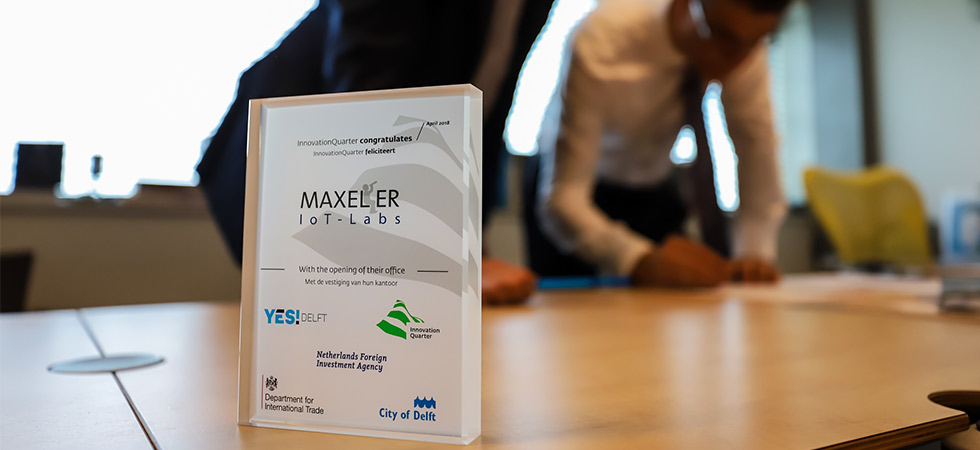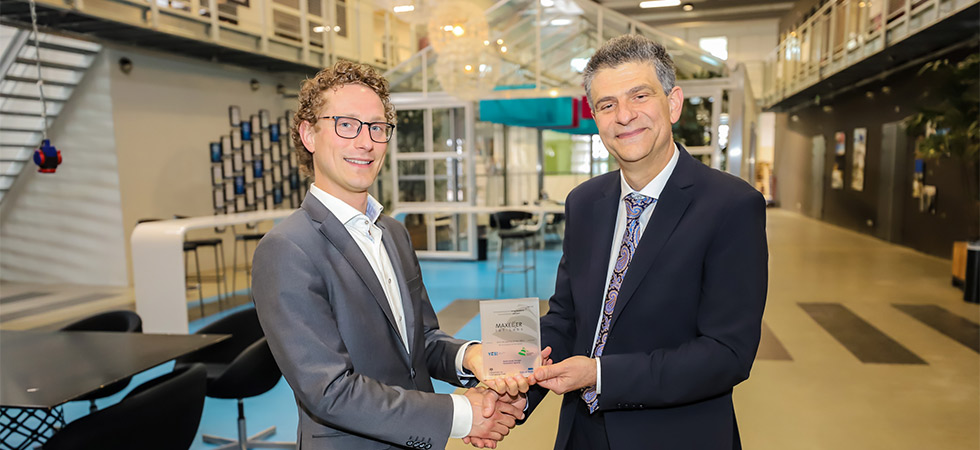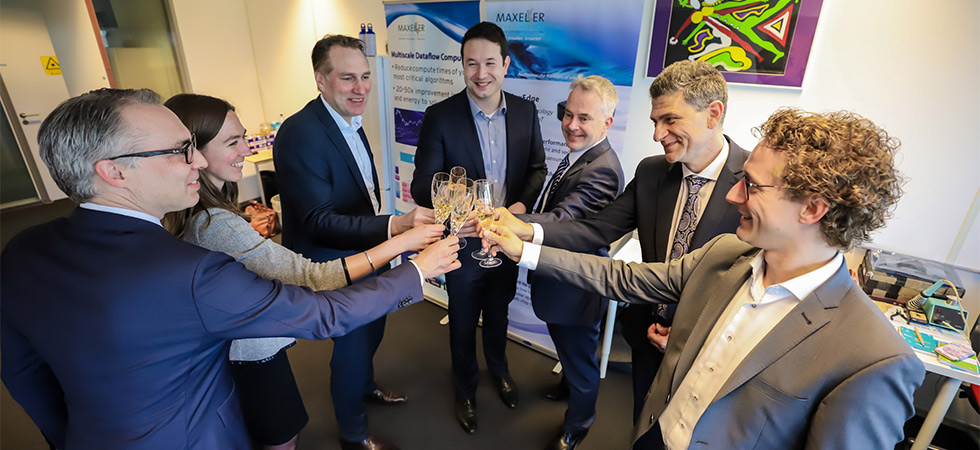Supercomputer manufacturer Maxeler chooses tech incubator YES!Delft
Maxeler at YES!Delft
Maxeler was founded in 2003 and has branches in London, UK and Mountain View in California. It builds ultrafast computer systems that offer customised solutions for a variety of very specific problems. The new branch will initially employ three people but expects to have between 10 and 20 employees within three years. For Maxeler, the presence of talent in the neighbourhood was the decisive factor in choosing YES!Delft.
Director Georgi Gaydadjiev: “Delft University of Technology is a top European university. Its proximity is vital for ensuring close collaboration and the recruitment and training of talent. Our current collaboration with Stanford and Imperial College has yielded very good results and we want to repeat that success in Delft. With its fantastic facilities, YES!Delft has helped us get our Dutch branch up and running very quickly.”
The establishment of the British company is closely in line with other developments within the region, emphasises InnovationQuarter’s Head of Foreign Investments Chris van Voorden: “Maxeler is an asset to West Holland and will contribute to the region’s fast-growing digital economy. Its technology fits well with the digital transition that our region is going through. The company will therefore strengthen our position as the ‘Digital Gateway to Europe’.”
Revolutionary computing power
Just as Shell builds oil refineries that quickly and efficiently convert raw materials into usable end products, Maxeler builds advanced computer systems that convert raw data into valuable information. Where traditional computers consist of hardware and software (computer programmes), Maxeler has completely replaced the critical parts of the software with hardware. This revolutionary method makes its computers 20 to 50 times faster than the fastest traditional computers.
Georgi Gaydadjiev adds: “We have in the past helped US bank JP Morgan with critical risk analytics calculations for its large investment portfolios. A big computer system needed eight hours to achieve this. We designed and installed a much smaller computer that produces the correct answer every two minutes instead, moreover our system uses significantly less electricity.”

Internet of things
This enormous computing power enables Maxeler to solve problems that would need too much time, energy and physical space when using traditional computer systems. Maxeler benefits from an important development here: the exponential growth of data, due to, among other things, the internet of things (IoT). As more and more devices are connected through internet, massive streams of data emerge that are quite simply too big for traditional computer systems to efficiently process. In addition, the network wastes a lot of electrical energy to carry over the data from the location where it is produced to the large computers in the nowadays data centres.
The company’s Delft branch, Maxeler IoT-Labs, will focus on new application fields that involve a lot of data and computational power, such as personalised medical care, particularly the large-scale processing of DNA data and quick, accurate calculations for highly customised radiotherapy. Gaydadjiev and his colleagues will also concentrate on making computer networks and IoT solutions secure, developing advanced artificial intelligence solutions for self-driving cars and processing graphics data for ultra-low latency virtual reality systems.
Important role for InnovationQuarter and partners
InnovationQuarter, the Netherlands Foreign Investment Agency (NFIA), Delft Technology Partners (DTP) and the Department for International Trade (DIT) of the British Embassy were involved in bringing Maxeler to Delft. Through the DIT, Maxeler took part in the Cyber Security Week at The Hague Security Delta (HSD) Campus in 2017. It was here that the company first made contact with InnovationQuarter.
Gaydadjiev says: “InnovationQuarter played a very important role by bringing us into contact with the right parties in West Holland. Together with the British Embassy, they helped us make a quick analysis of the cybersecurity and automotive landscape and identify the important stakeholders. This honed our initial idea for a branch in Delft.”
Maxeler and Delft: a good match
Deputy Mayor Ferrie Förster expects a lot from this branch of the British business: “Maxeler is at the top of its game regarding computing and the internet of things. We in Delft are at the technological summit in the broadest sense. Maxeler and Delft are therefore a good match and both the company and the city stand to benefit. I am thus very pleased with the arrival of Maxeler and convinced that Delft will be a good breeding ground for this fantastic company.”
Georgi Gaydadjiev also has high expectations of the new location and the opportunities the region presents: “In the Netherlands, we will of course be rolling out also our current products in the field of finance and risk analytics, but we eventually want to introduce new innovations as well. As already mentioned, we plan to grow our team within two years to over 10 employees. I see a very important role for Delft University of Technology in our recruitment process. By working with YES!Delft, we expect to embrace many exciting new opportunities as a result of the specific challenges that many of the young businesses at YES!Delft encounter.”




